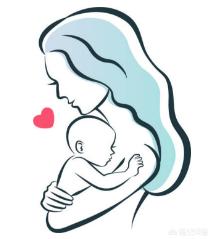Can a mother with AIDS bring up a child on her own?
As an infectious disease physician, I am often confronted with this question. It is not something that can be answered in one or two words. Because behind the growth of a child is a family and the social relations that the family faces. But in any case, the role of the mother is crucial.
HIV-infected mothers can have a healthy baby as long as mother-to-child transmission is interrupted under the guidance of a doctor. After the child is born, who will bring up the child is a systematic project of the family, and the role of the mother cannot be missing.
Breastfeeding is not recommended for HIV-infected persons due to the risk of transmission. AIDS is mainly transmitted through sexual intercourse, blood and mother-to-child transmission. Ordinary life contact, in the absence of blood exposure and direct contact with wounds. It is not contagious.
Therefore, mothers with AIDS are able to raise their children, and all they need to pay attention to is a few details, and even more so, they need to have a deep understanding of the ways in which AIDS is transmitted.
Kudos to a great mother's love!
It is not a problem to take precautions to avoid wound infections and to accompany your child with daily contact.
AIDS is a disease with a high mortality rate, and many people talk about AIDS and regard it as a ferocious beast, but in fact, it is not contagious in daily contact. Shaking hands, hugging, talking, sharing towels and stationery, and so on, are not contagious in daily interactions.

What are the ways in which AIDS is spread?
There are three ways of spreading AIDS: first, mother-to-child transmission, where a pregnant or breastfeeding woman with AIDS can transmit the disease to her fetus or baby; second, blood transmission, where sharing a syringe for drug use, blood transfusion and other behaviors can transmit AIDS; and third, sexual transmission, where there is a higher chance of being infected after having sexual intercourse with someone with AIDS.
If it is the mother who brings up the child, it will not be transmitted to the child if she is not breastfeeding, but breastfeeding is not allowed if the breastfeeding woman is infected with AIDS. And everyday utensils, toothbrushes, cups, etc. are not contagious to AIDS.
Although it is said that there is a call for care for AIDS patients, but in reality many AIDS patients are not treated well, that AIDS is incurable and can not be contacted with AIDS, otherwise they will be infected, so is this really the case?
AIDS is caused by the HIV virus, which is found in the blood, spinal fluid, semen and vaginal secretions of the human body, and to a lesser extent in breast milk, urine, saliva and feces. HIV is transmitted through sexual contact, blood, and from mother to child.
We will not be infected by AIDS if we usually have contact with AIDS patients, such as hugging, shaking hands, coughing, sneezing, etc. Some AIDS mothers who want to contact their children should be careful not to breastfeed their children to prevent their children from being infected as well, even though the chances are small, but it is necessary to take precautionary measures.
AIDS patients have always been isolated, but they are also part of the society, we can give them the care we can. We should pay more attention to our own health, regular medical checkups to understand our health condition and find out the disease timely treatment, there are medical checkup needs can be through theDauto Physical Examination NetworkMake an appointment.

This question and answer are from the site users, does not represent the position of the site, such as infringement, please contact the administrator to delete.